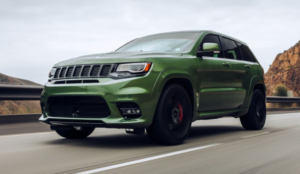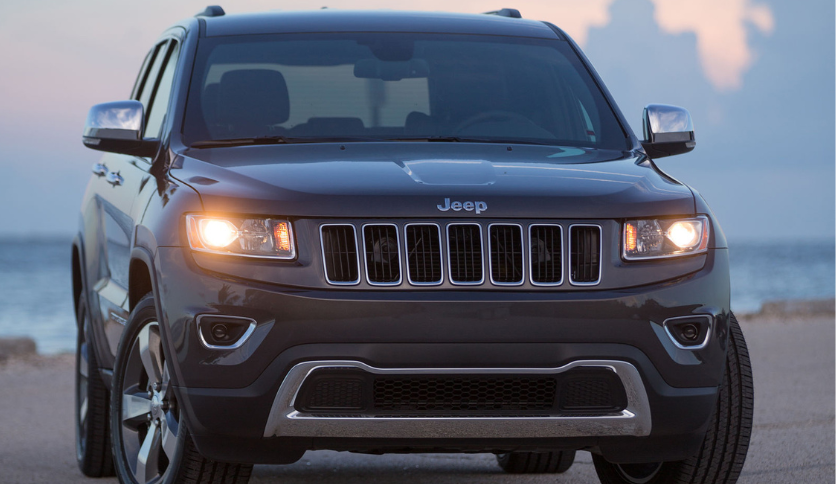When it comes to choosing a vehicle, reliability stands as a paramount factor for most of us. The Jeep Cherokee, a name synonymous with rugged adventure and durability, often finds itself at the center of discussions around reliability. But are Jeeps Cherokee reliable? This question lingers in the minds of potential buyers and automobile enthusiasts alike. In this article, we will delve into the world of Jeep Cherokees, exploring their track record, understanding owner experiences, and unraveling what makes them tick – or what doesn’t.
Whether you’re eyeing a new purchase or simply curious about this iconic vehicle, our exploration will provide you with clear insights into the reliability of Jeep Cherokees. Let’s buckle up and embark on this journey of discovery together!
Understanding the Jeep Cherokee: History and Evolution
The Jeep Cherokee’s journey is like a fascinating tale, starting from its debut in the 1970s. It wasn’t just any vehicle; it was a game-changer, a new chapter in the world of SUVs. Over the years, the Cherokee has gone through many changes, like a tree growing new branches. Each new model brought something fresh – a change in how it looks, the technology it uses, and how it performs on the road.
In the beginning, the Cherokee was all about being tough and ready for rough terrain. It was the kind of vehicle you’d picture when thinking about an off-road adventure. As time went by, the Cherokee started to adapt. It began to balance its tough nature with features that everyone in a family would appreciate. This meant not just being able to climb hills and cross streams, but also being comfortable for long road trips and safe for taking kids to school.
With every new version, Jeep tweaked the Cherokee. They added more modern features, like better engines that provided more power but used less fuel, and fancy tech inside for everyone to enjoy. They also worked on making it safer, with things like airbags and better brakes. All these changes weren’t just about keeping up with the latest trends; they were about making the Cherokee a better, more reliable car.
Understanding this evolution of the Jeep Cherokee is like watching a child grow up. You see how each stage builds upon the previous one, shaping what it becomes. This growth story of the Cherokee helps us understand why some models might be more reliable than others. It’s a journey from a rugged off-roader to a modern, family-friendly SUV that still hasn’t forgotten its adventurous roots.
Key Features of the Latest Jeep Cherokee Models

The latest Jeep Cherokee models are a testament to how far automotive technology has come, blending traditional ruggedness with modern innovation. These models aren’t just about looking good on the road; they’re packed with features that enhance both the driving experience and the vehicle’s reliability. Let’s look closer at what these new Cherokees have under the hood and in the cabin.
One of the standout features of the latest Jeep Cherokee is its advanced driver-assistance systems. These systems are like having an extra set of eyes on the road, helping to keep you safe. They include adaptive cruise control, which automatically adjusts your speed to maintain a safe distance from the car in front of you, and lane-keeping assistance, which helps keep you in your lane. There’s also a forward-collision warning and automatic emergency braking, which can be lifesavers in unexpected situations.
Infotainment is another area where the new Cherokee shines. The robust infotainment units are user-friendly and feature-rich, making long drives enjoyable. With touchscreen displays, seamless smartphone integration through Apple CarPlay and Android Auto, and premium sound systems, staying connected and entertained while on the go is easier than ever.
Real-World Reliability: Owner Experiences with Jeep Cherokees
Many owners report satisfaction with their Jeep Cherokees, though experiences vary based on model year and maintenance.
Delving into forums and customer reviews, we find a mixed bag of experiences. While some owners rave about their Cherokee’s longevity and ruggedness, others point out specific issues, particularly with older models. The consensus suggests that well-maintained Cherokees are reliable companions, especially for those who love a blend of city and off-road driving.
Comparing Jeep Cherokee Reliability Across Different Years
Newer Jeep Cherokee models tend to be more reliable than older ones, with significant improvements in reliability observed in models released after 2014.
When it comes to the reliability of Jeep Cherokees, it’s clear that the journey hasn’t been static. Over the years, there have been ups and downs, with newer models generally outperforming their predecessors. Here’s an in-depth, bullet-point breakdown of how Jeep Cherokee reliability has evolved:
1990s Models:
-
- Early 90s models faced some challenges, particularly with electrical systems and transmissions.
- These models are often admired for their durability, but they do require more maintenance.
Early 2000s Models:
-
- Saw improvements in comfort and features but continued to struggle with transmission issues.
- Reliability was average, with some models experiencing more problems than others.
Late 2000s to Early 2010s:
-
- This period marked a transitional phase for the Cherokee with both hits and misses in reliability.
- Common issues included cooling system problems and occasional electronic glitches.
Post-2014 Models:
-
- A noticeable uptick in reliability is seen from 2014 onwards.
- Improvements in manufacturing processes and technology upgrades contributed to fewer reported issues.
- These models show better performance in consumer reliability ratings.
Current Models:
-
- The latest models boast advanced technology and safety features.
- They are generally considered reliable, reflecting Jeep’s focus on quality and customer satisfaction.
In summary, while older Jeep Cherokees are known for their ruggedness and enduring build, they do come with the need for more hands-on maintenance. The newer models, especially those post-2014, show a marked improvement in reliability, making them a safer bet for those who prioritize dependability in their vehicles. It’s clear that as Jeep has evolved, so has the reliability of their Cherokee models, adapting to the demands of modern drivers.
Professional Insights: What Mechanics Say About Jeep Cherokee Reliability
Mechanics often commend the Jeep Cherokee for its sturdy build, but they also warn of certain components that might be prone to issues, particularly in some models. Understanding these insights can be crucial for both current and potential Jeep Cherokee owners.
- Robust Design and Build Quality: Mechanics frequently praise the Jeep Cherokee for its solid construction. Its ability to withstand tough conditions is a testament to its robust design, making it a reliable choice for those who love off-road adventures or simply need a sturdy vehicle for daily use.
- Transmission Issues in Specific Models: One of the most commonly noted concerns by mechanics is the transmission problems in certain Jeep Cherokee models. These issues seem more prevalent in models from specific years, and they underscore the importance of being aware of the model year when purchasing a Cherokee.
- Importance of Regular Maintenance: Mechanics stress the significance of regular maintenance in prolonging the life and reliability of the Jeep Cherokee. Timely oil changes, brake checks, and tire rotations can prevent major issues and ensure the vehicle operates smoothly.
- Electrical System Quirks: Some mechanics have pointed out occasional quirks in the electrical systems of Jeep Cherokees, such as sensor malfunctions or issues with the infotainment system. These are typically not deal-breakers but something to be mindful of.
- Engine Longevity and Performance: The engine performance of the Jeep Cherokee generally receives positive remarks. With proper care, these engines can last a long time without major issues, contributing to the overall reliability of the vehicle.
- Suspension and Ride Comfort: While the suspension is built to handle rough terrain, some mechanics note that it might require attention over time, especially in Cherokees that frequently venture off-road or carry heavy loads.
- Cost of Repairs: When it comes to repairs, the cost can vary. Some parts of the Jeep Cherokee are relatively affordable and easy to source, but certain repairs, especially those related to transmission or major engine components, can be on the higher side.
The Impact of Regular Maintenance on Jeep Cherokee’s Reliability
Regular maintenance is not just a recommendation; it’s essential for keeping your Jeep Cherokee reliable over the years.
- Importance of Oil Changes:
- Why It Matters: Regular oil changes are crucial. They keep your engine running smoothly by lubricating moving parts and reducing friction.
- Frequency: Typically, it’s advised to change the oil every 3,000 to 5,000 miles, but always check your Cherokee’s manual for specific recommendations.
- Tire Maintenance:
- Rotations and Balancing: Regular tire rotations help ensure even wear, extending the life of your tires. Balancing helps prevent vibrations and uneven wear.
- Pressure Checks: Keeping tires at the correct pressure improves fuel efficiency and safety.
- Brake Inspections:
- Safety First: Regularly checking your brakes is critical for safety. It ensures your Cherokee can stop effectively when needed.
- Signs to Watch For: Listen for any unusual noises like grinding or squeaking and pay attention to how the brake pedal feels.
- Fluid Checks and Replacements:
- Various Fluids: This includes engine oil, coolant, brake fluid, and transmission fluid. Each plays a vital role in your vehicle’s operation.
- Regular Checks: Monitoring and replacing these fluids as needed can prevent overheating and other mechanical issues.
- Battery Maintenance:
- Regular Testing: A weak battery can leave you stranded. Test your battery regularly, especially before winter.
- Cleaning Terminals: Keeping battery terminals clean ensures a good connection and prolongs battery life.
- Regular Inspections:
- Professional Eye: Regular check-ups by a professional can catch issues before they become major problems.
- Attention to Detail: Mechanics can spot wear and tear on engine parts, suspension, and other crucial areas.
- Following Manufacturer’s Service Schedule:
- Check Your Manual: Your Cherokee’s manual provides a schedule tailored to your vehicle’s needs.
- Adhere to Recommendations: Following these guidelines can help avoid major repairs down the line.
- Addressing Issues Promptly:
- Don’t Delay Repairs: If you notice something off with your Cherokee, getting it checked out immediately can prevent larger issues.
- Listening to Your Vehicle: Pay attention to any changes in performance, sounds, or driving experience.
Cost Analysis: The Financial Aspects of Jeep Cherokee’s Reliability

Owning a Jeep Cherokee, like any vehicle, comes with its share of financial considerations. Here, we’ll take an in-depth look at what you can expect in terms of costs, from regular maintenance to those unexpected repairs.
- Regular Maintenance Costs:
- Oil Changes: Regular oil changes are vital for engine health. For a Jeep Cherokee, the cost is on par with other SUVs in its class.
- Tire Rotation and Replacement: Keeping your tires in good shape is essential. Regular rotation helps extend their life, and the cost is generally affordable. However, replacing all four tires can be a significant expense.
- Brake Maintenance: Regular brake checks are recommended. Costs for brake pad replacements are average compared to similar vehicles.
- Major Repairs and Part Replacements:
- Transmission Issues: Some older Jeep Cherokee models have known transmission problems, which can be quite expensive to fix.
- Electrical Components: Repairing or replacing electrical components, like the alternator or starter, can also be costly.
- Suspension Work: Over time, the suspension system may need repairs, especially if you frequently drive off-road.
- Cost Comparisons:
- The Jeep Cherokee is comparable in maintenance and repair costs to other SUVs in its category.
- However, it’s important to note that older models might incur higher repair costs due to wear and tear or outdated parts.
- Fuel Efficiency and Related Costs:
- Fuel efficiency plays a big role in ongoing costs. Newer Cherokee models have improved in this area, but they may still lag behind some more fuel-efficient competitors.
- Insurance costs for Jeep Cherokees are generally average but can vary based on the model year and your location.
- Depreciation:
- Like most vehicles, Jeep Cherokees depreciate over time. However, they tend to hold their value better than many other SUVs, especially if well-maintained.
- Extended Warranty and Coverage:
- Considering an extended warranty can be a wise decision, especially if purchasing an older model. This can help mitigate the costs of unexpected major repairs.
Warranty and Support: Understanding Jeep’s Commitment to Reliability
Jeep offers a competitive warranty, which adds an extra layer of confidence in the Cherokee’s reliability.
Jeep’s warranty policies provide comprehensive coverage for new Cherokees, including a limited powertrain warranty. This commitment from the manufacturer underlines their confidence in the vehicle’s reliability.
Off-Road and Adventure-Ready: Assessing the Rugged Reliability of Jeep Cherokees
The Jeep Cherokee excels in off-road conditions, proving its reliability in challenging environments.
One of the Cherokee’s biggest selling points is its off-road capability. Owners often praise its ability to tackle tough terrains, from muddy trails to rocky paths, showcasing its enduring reliability in adventurous settings.
FAQ about Are Jeeps Cherokee reliable
Are older Jeep Cherokees more reliable than the newer models?
Older models have their charm but may require more maintenance. Newer models benefit from technological advancements and improved manufacturing processes.
How does the Jeep Cherokee compare in reliability to its competitors?
The Cherokee fares well, especially in off-road capabilities, though some competitors might offer better fuel efficiency or interior luxury.
What are the most common issues Jeep Cherokee owners face?
Common issues include transmission problems in certain models and typical wear-and-tear repairs.
Is the Jeep Cherokee a good choice for off-road adventures?
Absolutely! Its rugged design and 4×4 capabilities make it a favorite among off-road enthusiasts.
Conclusion
In wrapping up our journey into the world of Jeep Cherokees, we’ve traversed various terrains from its history and features to the real-world experiences of owners and mechanics. The pivotal question, “Are Jeeps Cherokee reliable?” has been at the heart of our exploration. The answer, it seems, is nuanced.
Jeep Cherokees have showcased a commendable blend of ruggedness and adaptability, making them a popular choice for those who crave an adventure-ready vehicle. As we’ve seen, their reliability largely hinges on the model year, maintenance practices, and individual usage. Newer models have shown improvements in both technology and reliability, while older models require a more hands-on approach in terms of maintenance.
It’s clear that owning a Jeep Cherokee is about striking a balance between its adventurous spirit and the practicalities of upkeep. For those willing to invest in regular maintenance, the Cherokee can be a dependable and rewarding companion on city roads and off-road escapades.

Hello there, this is Thomas Byrd. I am a professional car mechanic who leads a team of junior mechanics in a repair and restoration shop. In the beginning, I used to work for a jeep service center as a basic worker. From there I keep learning, changed my job 2 times and now I am a professional who leads a group of mechanics. Though a have expertise in the jeep, I know very well about all types of cars. To share my knowledge and skills with others I have created this blog website. Whenever I get free time from work I give my time to my blog.

